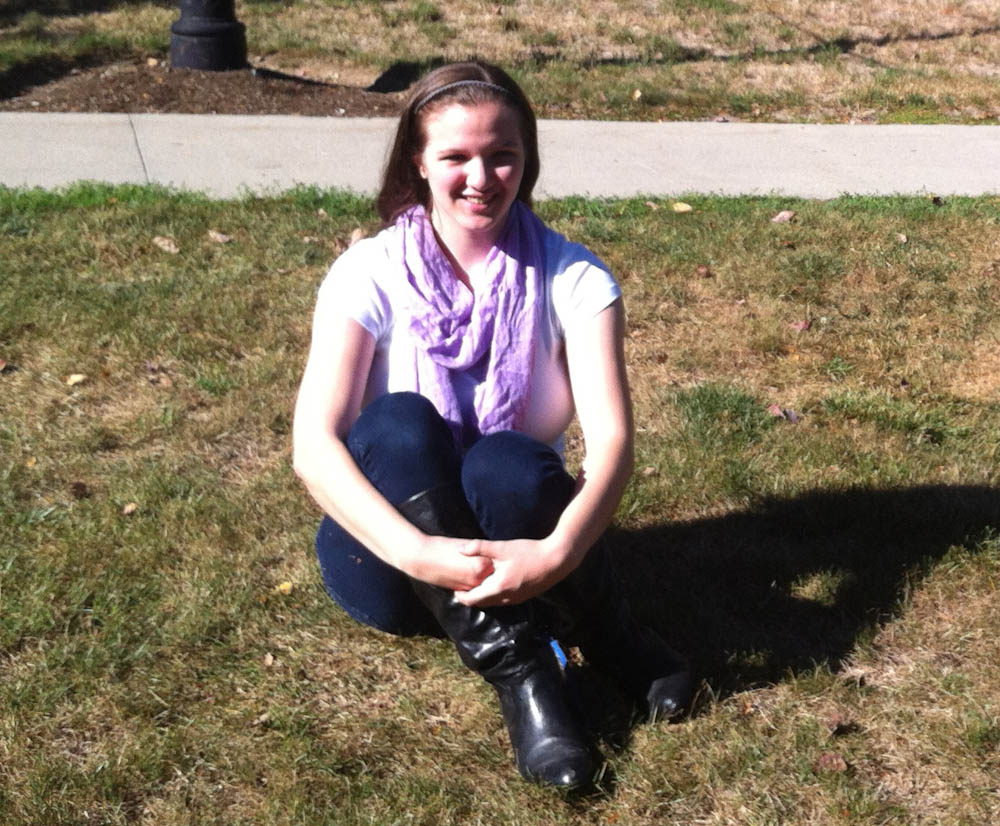By Frannie Palmer
As a kid, I stumbled on my feet quite a bit. I had to use two hands on the railing while going down stairs. My parents thought I was just a little clumsy.

The truth was, a brain tumor was creating pressure on my cerebellum and causing my incoordination.
I was 6-years-old when I had surgery to remove the non-cancerous tumor. It wasn’t until I began applying for early decision admission to Wheaton College that I fully grasped how much it had affected me.
After the surgery, I had to re-learn how to walk and talk. My childhood was filled with multiple MRIs a year; I’ve lost count of how many I’ve had to this day. MRI appointments, now once every other year, are coupled with visits to the Stop & Shop Family Pediatric Neuro-Oncology Outcomes Clinic, a clinic for pediatric brain tumor survivors, where I update my team of doctors on the latest news of my life and any difficulties I may be facing.
 I sometimes struggle with my balance. My information processing speed is a little slower than normal. And my overall neurological function can be labored. However, I also participate in horse shows, and made the Dean’s List both semesters I’ve been at Wheaton. I have to give myself more time to do my assignments, and I am frequently working with the dean of disabilities, but my professors and counselors pay close attention and help me keep track of my work.
I sometimes struggle with my balance. My information processing speed is a little slower than normal. And my overall neurological function can be labored. However, I also participate in horse shows, and made the Dean’s List both semesters I’ve been at Wheaton. I have to give myself more time to do my assignments, and I am frequently working with the dean of disabilities, but my professors and counselors pay close attention and help me keep track of my work.
During my senior year of high school, I had the privilege to hear students speak at College Night, presented by the School Liaison Program at Dana-Farber/Boston Children’s Cancer and Blood Disorders Center. I was honored when I had the opportunity to speak at this year’s presentation, held on October 9, and share the lessons I’ve learned from my experience.
Here is some advice I can give to student survivors who are getting ready to make this transition:
- Don’t be ashamed of your diagnosis. Being honest with people allows them to know who you truly are, and helps you build better relationships.
- Be proactive about using resources offered on campus, such as counseling and the office of disabilities.
- Accept the limitations you have. Whether it is academically or physically, learn to work with your own style of learning so that you may work to your fullest potential.
- Always remember how far you’ve come, and never be afraid to go after what you want.
I believe survivorship is something to be proud of. It doesn’t define who I am, but it is a significant part of my character. Since I was so young when this journey began, I grew up knowing I was a little different. I knew, though, if I ever let it get in the way of achieving my goals, I would miss out on many opportunities.
I’ve realized I don’t know what I would be like if I’d never had the tumor, or the surgery. And I’m okay with that. I am proud of how far I’ve come. It makes me confident, stronger, and more resilient.

Nice article! Very inspirational, I like how your outlook in life